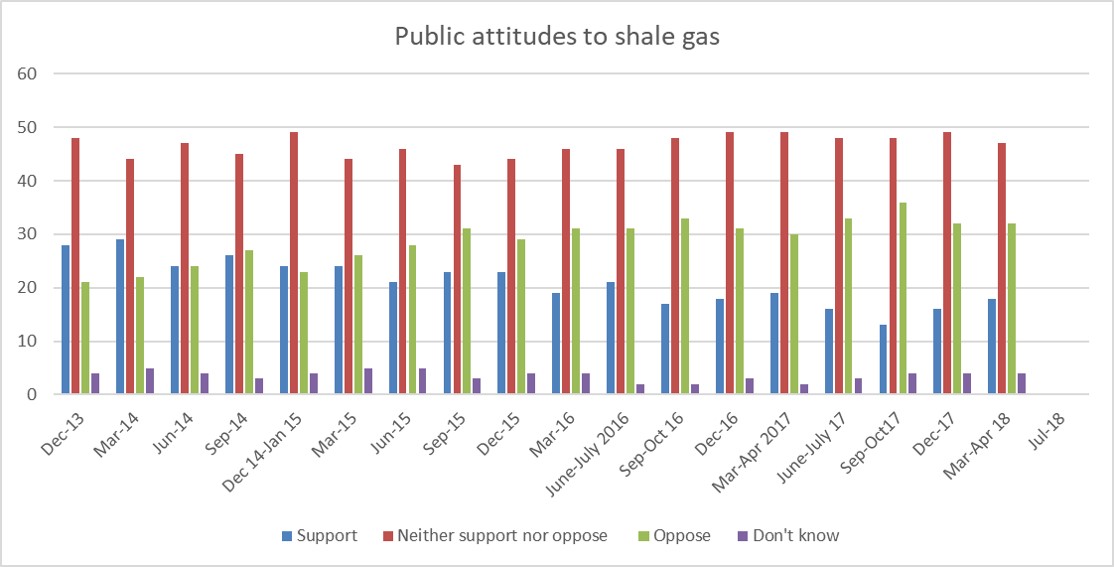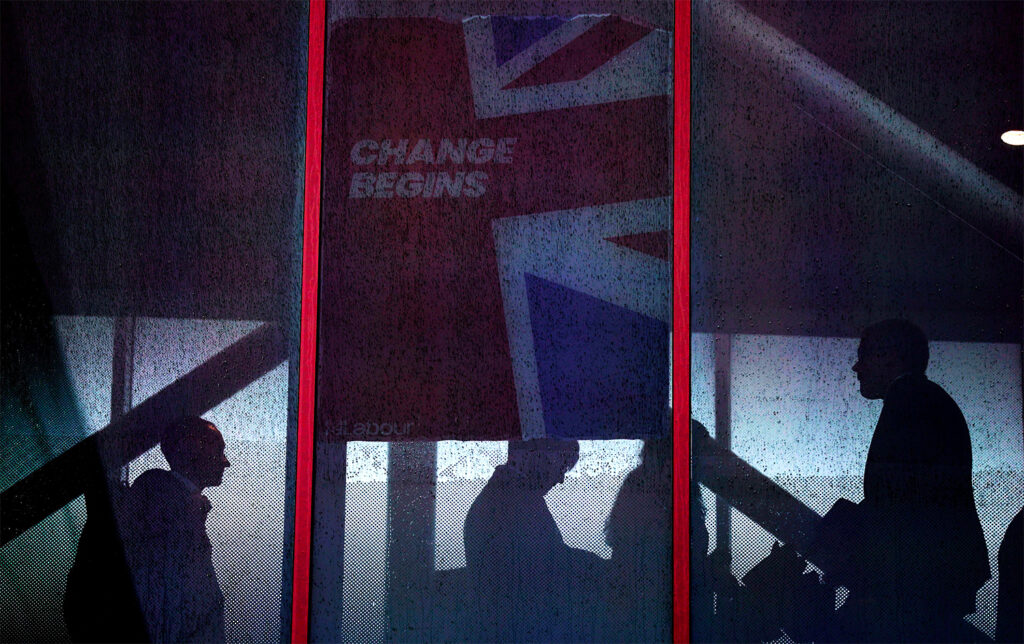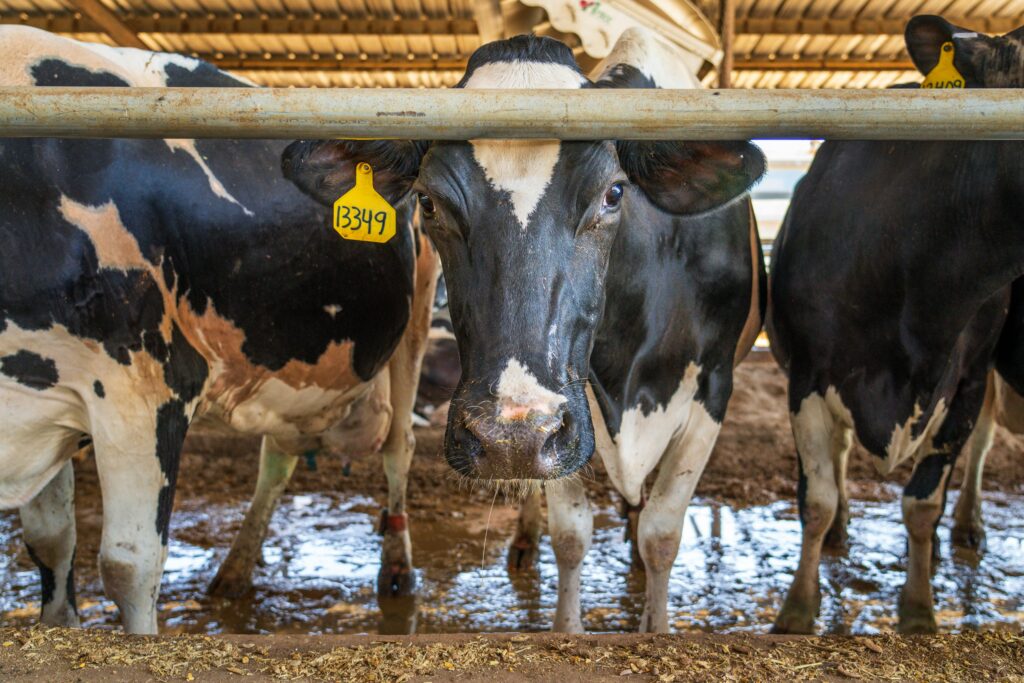By Ruth Hayhurst for Drill or Drop
For the first time since 2013, a quarterly public attitudes survey for the government has not asked questions on whether people support or oppose fracking.
The latest findings, published this morning, cover only whether people were aware of the process.
Previously, 18 surveys for the Wave public attitudes tracker had asked whether people supported or opposed fracking for shale gas and by how much. It also asked why people supported or opposed.
The survey is commissioned by the Department for Business, Energy and Industrial Strategy (BEIS). Before the most recent survey, BEIS carried out a review. Its response to the review, also published this morning, said questions about shale gas would now be asked annually, rather than quarterly, starting in April 2019.
It said:
“We will not be amending these questions at this stage but will continue to review them to ensure its reliability and value to the department and users.”
Questions about renewable energy remained in today’s survey results but there was not a question about attitudes to nuclear. This will also be asked annually.
Trends
According to data from previous surveys, support for fracking had fallen since a record high of 29 percent in March 2014. Most recently, there were two consecutive increases in support. Opposition reached a record high last summer (36 percent) and, as usual, dropped slightly in the winter.
In the previous survey, carried out in March-April 2018, support for fracking stood at 18 percent of participants and opposition at 32 percent. People who neither supported nor opposed stood at 47 percent and people who “didn’t know” was 4 percent. 2 percent of participants strongly supported fracking and 13 percent strongly opposed.
In March-April 2018, the main reasons for supporting shale gas were: Reduce dependence on other countries for energy supply (36 percent); need to use all available energy sources (35 percent) and reduce dependence on other fossil fuels (31 percent).
The main reasons for opposition were: Loss or destruction of the environment (57 percent); risk of contamination to water supply (31 percent); too much risk or uncertainty (28 percent); risk of earthquakes (29 percent).
Renewables
Today’s results did include questions about the level of support for renewables.
82 percent of participants said they supported renewables, with 37 percent strongly supporting. 4 percent opposed renewables, with 1 percent strongly opposing. 13 percent neither supported nor opposed and 1 percent didn’t know.
Awareness
On shale gas, the survey found that 78 percent were aware. This was up slightly on the previous figure of 76 percent.
14 percent of participants knew a lot, up from 12 percent in the previous survey.46 percent knew a little, also up from the previous survey (42 percent). 18 percent said they were aware of shale gas but did not really know what it was. 22 percent had never heard of it, down slightly from 24 percent in the previous survey.
As with previous surveys, the most recent findings showed that awareness of fracking was higher among people aged 55-64 (91 percent), in social grade AB (90 percent) and with household incomes of £25,000-£34,999 (88 percent).
BEIS said awareness was also highest among people living in Northern Ireland (88 percent) where there is a presumption against fracking.
Reaction
Keith Taylor, Green Party MEP for south east England, said:
“Ministers have been asking the public whether they support fracking on a quarterly basis for over four years. But, despite a huge PR push, opposition has always outstripped support—which has never exceeded 30 percent and long languished below 20 percent.
“How have the Conservatives responded to such a consistent rejection of the climate-destructive industry? By stopping asking what we think so often and giving fracking the green light in the meantime. While, at the same time, pushing through plans to cut our local government representatives out of the decision-making process.
“For all it’s rhetoric, you couldn’t ever accuse this Government of caring about ‘the will of people’. More and more, Britain is being governed by corporations for corporations; the people don’t get a look in.”
Methodology
The Wave 26 tracker carried out 4,268 face-face in-home interviews with a representative sample of adults aged 16+. Fieldwork was conducted from 11-17 July 2018 on the Kantar TNS Omnibus. The questionnaire was designed by BEIS and Kantar Public.
Subscribe to our newsletter
Stay up to date with DeSmog news and alerts







